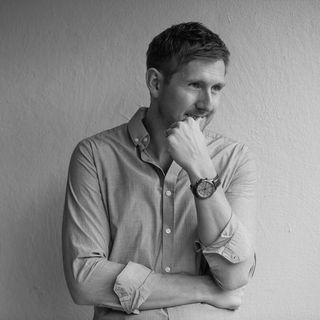Resilience
Resilience and Humility
An interview with Dr. Joshua Hook on how humility helps in life's hardships.
Posted January 10, 2019
My new book, A Walking Disaster: What Surviving Katrina and Cancer Taught Me About Faith and Resilience, will be released next week. This month, I’ll be running a series of interviews with expert psychologists about key themes I share in my book and how resilience connects to their area of study.

For this second entry in the series, I interviewed one of the country’s leading humility researchers, Dr. Joshua Hook, an associate professor of psychology at the University of North Texas. Dr. Hook was one of the first researchers to empirically study humility. He is a prolific writer and scholar whose work has helped advance psychology’s understanding of humility. He has co-authored or co-edited several books including the Handbook of Humility: Theory, Research, and Applications and Cultural Humility: Engaging Diverse Identities in Therapy.
JA: How do you personally define humility?
JH: I think there are two key parts of humility. The first part is more internal and involves an accurate view of the self, including awareness and acknowledgment of one’s limitations. The second part is more interpersonal and involves being other-oriented rather than self-focused.
JA: How can practicing humility help us live more resiliently?
JH: A key factor in living more resiliently is to know when we need help and to be able to seek out the help we need. Humility allows us to get in touch with our limitations and understand the areas of our life where we need help from others.
JA: What are some ways we can cultivate humility when facing hardships?
JH: When facing hardships, getting in touch with what we need is really helpful. For example, it might be helpful to ask yourself, in what areas am I doing okay, and in what areas do I need more help and assistance? Then, once we understand our limitations, can we reach out to others and be honest and vulnerable about our needs?
JA: How might humility help us walk alongside a friend or loved one facing a difficult life situation?
JH: When someone is struggling, we often think we know what they need. Maybe we put ourselves in their situation and think about what we would need if we were in their shoes. This can be helpful to a point, but everyone’s different. We really don’t know what another person needs unless we ask them. When we help with humility, we don’t make assumptions. We ask what the other person needs and how we can help.
JA: Can you share about what you’re working on these days related to humility?
JH: Our lab is collecting data that looks at humility in the context of political differences. Our country is so politically divided and polarized right now that it sometimes seems as if humility is nowhere to be found. But if we want to work together as a country to solve our most difficult problems, I think we might need a heavy dose of humility. We’re trying to understand what that looks like.
JA: How did you first get interested in studying humility?
JH: I actually became a humility researcher by accident. When I was in graduate school, one of my fellow students wanted to do her master’s thesis on humility. She ended up deciding not to become a psychologist, but I still was interested in the topic, so we started to do some research on it. There wasn’t much psychological research on humility at the time, so it was neat to be able to contribute to a new field.
JA: Anything else you care to share?
JH: It feels more difficult than ever in our society to engage differences appropriately and effectively. We are so divided—racially, religiously, and politically. I believe humility can help.


